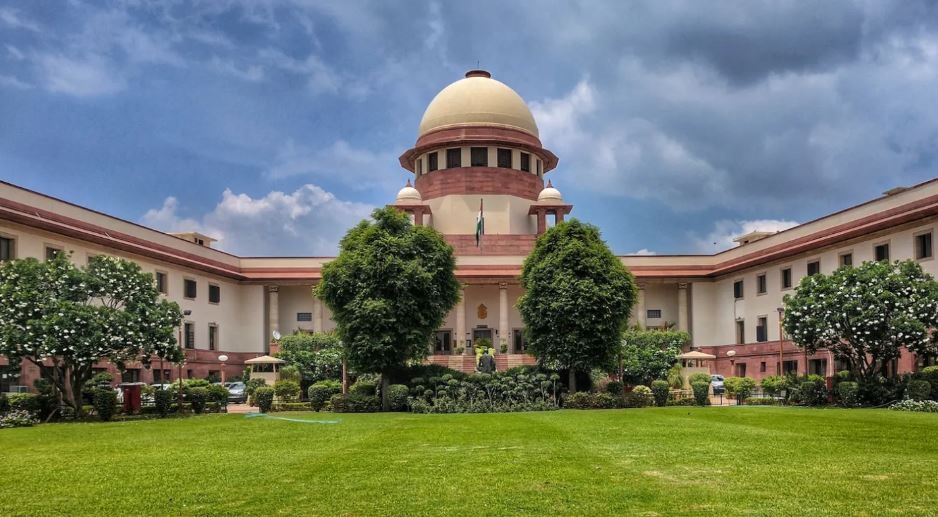
New Delhi: It will be court's opinion versus the legislative power to enact law, the Supreme Court on Wednesday said as it posted the pleas challenging the appointment of the chief election commissioner and election commissioners under the 2023 law on February 4.
A bench of Justices Surya Kant, Dipankar Datta and Ujjal Bhuyan was informed by advocate Prashant Bhushan, representing an NGO, the incumbent Chief Election Commissioner (CEC) Rajiv Kumar was set to superannuate on February 18, and a new CEC would be appointed under the new law, if the court didn't intervene.
Bhushan said the top court in its the March 2 2023 verdict set up a panel comprising the Prime Minister, the Leader of Opposition and the CJI to appoint the CEC and election commissioners (EC).
"However, under the new law the selection committee will comprise the Prime Minister, a union cabinet minister, the Leader of Opposition or the leader of the largest opposition party in Lok Sabha. They have removed CJI from the selection committee," submitted Bhushan.
Next hearing on February 4
While posting the hearing on February 4, the bench said it would see whose views had supremacy.
"It will be the opinion of the court under Article 141 versus legislative power to enact law," it underscored.
Senior advocate Gopal Sankaranarayanan, appearing for one of the petitioners, said the government did not remove the basis of the March 2, 2023 judgement, and enacted a new law Bhushan said the government couldn't control the appointment of election commissioners as it would be a threat to democracy.
"We are of the view that the government cannot remove the CJI from the selection panel which was directed to be formed by the Supreme Court on March 2, 2023," he said.
Also Read |
Ram Temple row: SC pushes for 'amicable' solution, offers 'mediation'
Sankaranarayanan said the only way the Centre could have got around the judgement was by amending the Constitution and not enacting a law.
The bench asked Bhushan and Sankaranarayanan to remind the judges on February 3 for the matter to be taken up the following day.
On March 15, 2024, the top court refused to stay the appointments of new ECs under a 2023 law which excluded the CJI from the selection panel and deferred the hearing on a batch of pleas challenging the appointments.
The top court told the petitioners the March 2, 2023 verdict directed for the three-member panel comprising the Prime Minister, Leader of Opposition and the CJI to operate till Parliament enacted a law.
Bhushan, who appeared for the petitioner Association for Democratic Reforms (ADR), challenged the CJI's exclusion and contended the Election Commission should be insulated from "political" and "executive interference" for maintaining a healthy democracy.
ADR's argument
ADR's plea alleged the verdict was overruled by the Centre without removing its basis and the composition of the selection committee under the new law which amounted to excessive interference of the executive in the appointments and was detrimental to the independence of the poll panel.
Former IAS officers Gyanesh Kumar and Sukhbir Sandhu were recommended to be appointed as ECs in 2024 by a selection panel chaired by Prime Minister Narendra Modi under the new law.
Also Read |
Gujarat riots: R.K. Raghavan relieved from heading SIT
The NGO challenged the validity and sought a stay on the operation of Section 7 of the Chief Election Commissioner and Other Election Commissioners Act, 2023, which excluded the CJI.
The apex court's March 2, 2023 verdict held leaving the appointment of the ECs and CEC in the hands of the executive would be detrimental to the health of the country's democracy and the holding of free and fair elections, it said.
Another petitioner, Congress leader Jaya Thakur from Madhya Pradesh, sought to restrain the Centre from appointing new ECs under the 2023 law while challenging its provisions.
The Constitution bench on March 2, 2023, ruled, "As far as appointments to the posts of chief election commissioner and election commissioners are concerned, the same shall be done by the president of India on the basis of the advice tendered by a committee consisting of the Prime Minister of India, the Leader of Opposition in the Lok Sabha and, in case there is no such leader, the leader of the largest party in the opposition in the Lok Sabha and the chief justice of India."
"This norm will continue to hold good till a law is made by Parliament," it further held.







